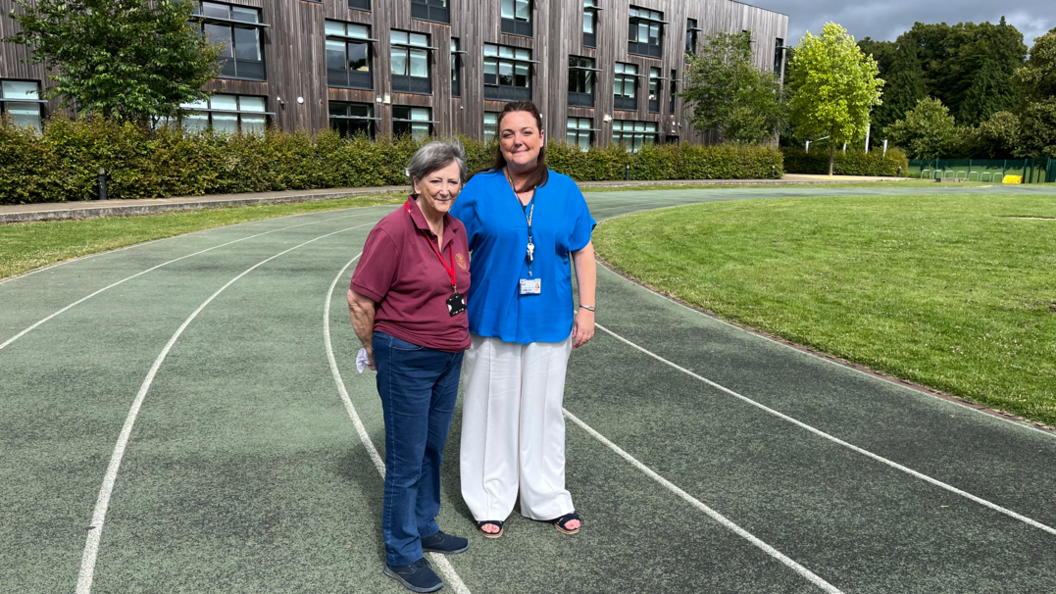Games at home of modern Olympics in doubt

Helen Cromarty and Ruth Shaw said the Wenlock games have a special place in history
- Published
The future of an athletics event which inspired the birth of the modern Olympics is in doubt, because of the state of the running track.
Baron Pierre de Coubertin to set up the International Olympic Committee in 1894 after visiting the Wenlock Olympian Games, founded by Dr William Penny Brookes.
The games in Much Wenlock, Shropshire, still run today, but the running track, plus the discus and long-jump areas are in need of repair.
Helen Cromarty, a trustee of the games, said £208,000 needed to be found to bring them up to UK Athletics standards and she believes that could take up to two years.
UK Athletics gave the games permission to continue using the six-lane, 200m track until September, so this year's games are not under threat.
But Ms Cromarty said: "If we can't raise the money it will not happen here in Much Wenlock next year."
She described Much Wenlock as a "very special place in the history of the Olympic games," but said the current running track, which was laid in 2011, has "had a lot of wear and tear".
It failed to meet UK Athletics TrackMark quality standards when it was inspected in March, meaning competitions cannot be held there.
Ms Cromarty said the discus and long-jump areas had failed to meet health and safety standards.
The trustees are attempting to find the money with the help of the neighbouring William Brookes School.
Its acting head teacher, Ruth Shaw, said the secondary school shared the Olympic values of respect, excellence and friendship.
She said: "It's a huge loss to us because the students really do recognise the importance of the history in Much Wenlock."
"There's something really special about places that are linked to history, and I think in the modern age we can still feel that," she added.
Ms Cromarty said she hoped working with the school would give them access to otherwise-unobtainable education and sports grants.
Follow BBC Shropshire on Facebook, external, X, external and Instagram, external. Send your story ideas to: newsonline.westmidlands@bbc.co.uk, external